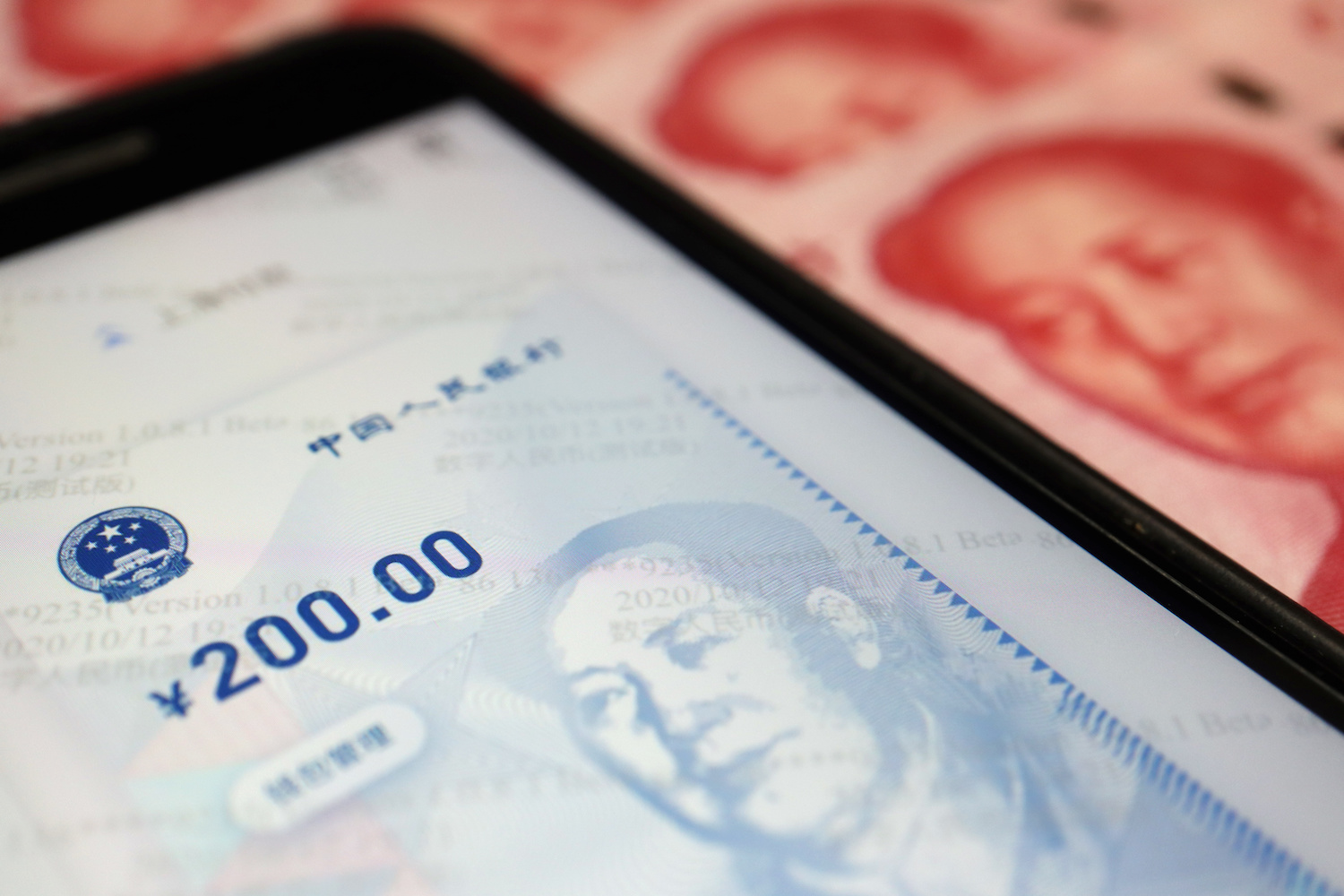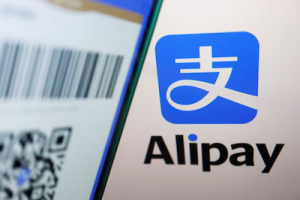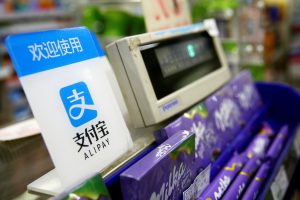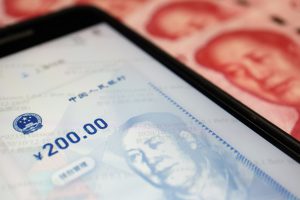(ATF) Speculation about China’s digital yuan has been rife all year. At present, the digital yuan is being tested in Shenzhen, Suzhou and other places, but to most of the country’s 1.4 billion people it is still a mystery.
In the China Financial Stability Report (2020) released on November 6, the People’s Bank of China noted that there is no timetable for the official launch of the digital yuan.
Although it has not been officially unveiled, rumours about the digital currency have spread online.
For instance, it was rumoured that digital yuan wallets must be bound to a particular mobile phone number, and that the digital yuan cannot be exchanged for gold or foreign exchange.
It was also rumoured that the digital yuan would replace existing third-party mobile payment tools.
So, Science and Technology Daily got the lowdown from authoritative experts at the central bank to try to clarify misunderstandings about the digital yuan and some related issues. Here is our translation:
Rumour 1: The digital renminbi wallet should be tied to a mobile phone number?
Answer: It is not necessary to be tied, that is just one form of authentication.
In an interview with the media, Mu Changchun, director of the Digital Currency Research Institute at the People’s Bank of China, said that the digital yuan account does not have to be bound to a mobile-phone number. It is just that a mobile phone number is used to open a digital yuan wallet in order to receive verification codes and other authentication information. Other forms of authentication are available.
In a separate interview, Huang Guoping, director of the Investment and Financing Research Center at the Chinese Academy of Social Sciences (CASS), said: “Digital wallets are management software for storing digital yuan addresses and passwords.”
To open a digital wallet, you need identification information that can reflect the uniqueness of your identity. Any unique identification can be used to open a digital wallet, and a mobile phone number is just one type of identification. In the future, passport numbers, fingerprints, and other identification information will do, Huang Guoping said.
Recently, news spread wildly on the internet that the “digital renminbi cannot be exchanged for gold and foreign exchange”.
Rumour 2: Can the digital yuan be exchanged for gold and foreign exchange?
Answer: Yes, in the pilot phase, [but] in the future, changes will depend on policy-makers.
An official who preferred to be anonymous said: “In the pilot phase, in order to attract more people to use the digital renminbi, the policy may be looser, allowing digital yuan to be exchanged for gold and foreign exchange. [But] I personally think that could be regarded as a short-term incentive.”
Huang Guoping of CASS also said that he believed it was unlikely that the digital renminbi could be freely exchanged for gold and foreign exchange in the future.
“The digital yuan is the digitisation of banknotes,” he said. “It has all the functions of banknotes. But since banknotes cannot buy gold and foreign exchange, the digital yuan is highly unlikely to have this function.
“However, since the digital yuan has not been officially launched, and relevant policies are still being studied and discussed, whether it can be exchanged for gold or foreign exchange will ultimately depend on the national currency and foreign exchange policy.”
Rumour 3: Will the digital yuan replace third-party payment tools?
Answer: One is money and the other is a type of wallet, so these things are not the same.
The emergence of third-party mobile payment tools such as WeChat and Alipay has brought people a brand-new payment experience. But emergence of the digital yuan has made many young people believe that it will replace WeChat and Alipay.
Mu Changchun said that WeChat, Alipay and digital yuan were “not in the same dimension.”
“WeChat and Alipay are financial infrastructures and wallets, while digital yuan is actual money in the wallet. In the electronic payment scenario, the two wallets, WeChat and Alipay, contain yuan that people store in commercial banks. After the digital yuan is issued, everyone can still use WeChat and Alipay to pay for things.”
In this regard, Huang Guoping said he believed the purpose of the state launching the of digital yuan was not to replace WeChat and Alipay. He believed the new payment system built around the digital yuan would become an important supplement to electronic payments, but there was a possibility the new payment system technology would replace existing payment systems.
“Now, when using third-party mobile-payment tools to make payments, a lot of our personal information may be obtained by these third-party payment platforms. But if you switch to using digital yuan for transactions, personal information will not be obtained by third-party payment platforms – in order to ensure that both parties of the transaction conduct transactions anonymously, to ensure that personal privacy is not leaked,” Huang Guoping explained.
“In the long run, new payment tools must be more advantageous than existing mobile-payment tools, so there is a possibility of substitution. But in the short term, because the digital yuan is still in the pilot phase, [testing] whether it is technically safe and convenient, and whether the technical system is perfect, maybe, it still needs further verification.”
Rumour 4: The digital RMB will replace paper currency soon?
Answer: Paper currency will still exist.
The digital yuan is about to come out, so many people feel that with the arrival of digital currency, paper currency will be completely withdrawn from the stage of history.
But these experts believe that digital currency cannot completely replace cash. At least for now, there are still some technical limitations. In addition, due to different user habits, not everyone is willing to accept the digital payment method. For example, some older people may not want to use digital currency.
In this regard, Huang Guoping believes that in theory, they digital yuan cannot replace paper money in recent years, but perhaps in 10 or 20 years, digital currency will eventually replace paper money.
“Compared with traditional paper money, digital currency has many advantages. It has the characteristics of environmental protection, efficiency, and safety. The cost of digital currency issuance is almost zero, while the cost of paper currency issuance is very high.”
Huang Guoping said that once the digital yuan is set up and mature, the issuance system will be very simple, while paper banknotes need to be printed, and recovery of damaged notes also added t state costs.
“From a policy and legal point of view, digital currency and banknotes are equal, and they can be freely exchanged. However, from the perspective of technological development, it is the general trend for electronic currency to replace banknotes, and this is also the trend of future development of various countries.” Huang Guoping said.
The digital renminbi will be issued by the People’s Bank of China, relayed by designated operating institutions and exchanged for public use. It is based on a broad account system and is equivalent to banknotes and coins, the paper said. It is a controllable and anonymous payment system with value characteristics and legal compensation tools.
As to whether the digital yuan is entirely anonymous will be found out once trial results are released.
Dong Ximiao, a special researcher at the National Finance and Development Laboratory, said that when using digital renminbi, there is no need to open a bank account or a payment account, as long as a digital yuan wallet is installed on a device, like a phone, it can be used.
The digital renminbi also uses the latest dual offline technology – even when a mobile phone has no signal. “As long as you touch a mobile phone equipped with a digital yuan wallet, you can easily complete transfer or payment,” he said.
Hao Yi, a researcher at the Bank of China Research Institute, believed that the digital yuan is a legal tender with unlimited legal solvency and can effectively break existing transaction barriers.
He also believed the digital yuan would have many positive features – it would help to unify payment standards, help to build a unified standard financial infrastructure, reduce the waste of resources caused by inconsistent standards and transaction barriers, and save on transaction costs.
























